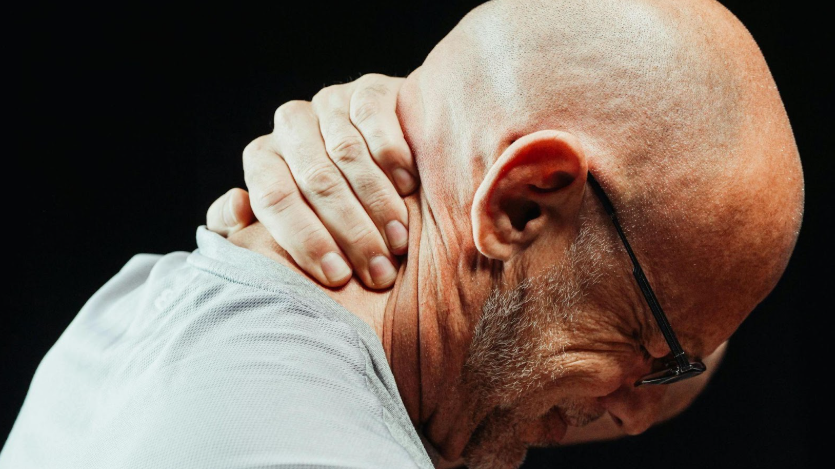The Link Between Chronic Pain and Mental Health: Breaking the Cycle

Chronic pain and mental health are closely connected, creating a cycle that is often challenging to disrupt. Persistent physical discomfort often leads to emotional distress, while mental health challenges can amplify pain perception. Understanding this relationship is integral to finding effective solutions for those trapped in this cycle.
What Is Chronic Pain?
Chronic pain is defined as pain lasting for three months or longer, persisting beyond the typical healing time for an injury or illness. Unlike acute pain, which signals immediate harm to the body, chronic pain often serves no protective purpose. Common conditions associated with chronic pain include arthritis, fibromyalgia, and back pain.
Chronic pain impacts physical well-being and disrupts daily routines, work performance, and relationships. Over time, the constant struggle with pain can lead to feelings of frustration, hopelessness, and isolation.
The Impact of Chronic Pain on Mental Health
Living with chronic pain can significantly affect mental health. Persistent pain often leads to anxiety, depression, and mood disorders. These mental health challenges arise for several reasons:
- Emotional Strain: The stress of dealing with ongoing pain can wear down emotional resilience.
- Sleep Disruption: Chronic pain frequently interferes with sleep, which is necessary for mental and physical recovery.
- Reduced Social Interaction: Pain may limit mobility and participation in activities, leading to loneliness and social withdrawal.
Studies have shown that individuals with chronic pain are more likely to experience mental health conditions. For example, depression rates are significantly higher among people with chronic pain compared to the general population.
How Mental Health Influences Pain
Mental health disorders can intensify the experience of chronic pain. Anxiety and depression often heighten pain perception, making it feel more severe than it is. This occurs because emotional distress activates areas of the brain involved in pain processing, creating a feedback loop that worsens both conditions.
Additionally, negative thought patterns associated with depression or anxiety, such as catastrophizing, can make it harder to cope with pain. Catastrophizing involves focusing on the worst-case scenarios, which increases feelings of helplessness and amplifies pain.
Effective Approaches to Breaking the Cycle
Breaking the link between chronic pain and mental health challenges requires a comprehensive approach. Addressing both physical and emotional aspects is essential for meaningful relief.
Holistic Pain Management
Managing chronic pain involves far more than just taking medication; it requires a comprehensive and integrated approach that considers physical, emotional, and social factors.
Physical therapies like physiotherapy focus on improving strength, flexibility, and mobility, which can reduce pain over time. Acupuncture, an ancient practice rooted in traditional Chinese medicine, stimulates specific points in the body to alleviate discomfort and promote healing. Similarly, massage therapy can help relax tense muscles, improve circulation, and release endorphins, the body’s natural painkillers.
These treatments don’t just address physical symptoms; they also promote relaxation, which can ease the emotional distress often linked to chronic pain. Relaxation techniques help regulate the nervous system, reducing stress and anxiety—two factors that can intensify the perception of pain.
Holistic pain management also emphasizes the importance of addressing the social dimensions of chronic pain. Isolation and reduced participation in daily activities can worsen feelings of despair, creating a cycle that’s hard to break. Individuals can maintain connections that foster emotional resilience by incorporating group support, counseling, or even gentle social activities.
This multidimensional approach makes sure that pain is not merely suppressed but actively managed in a way that improves overall quality of life. Combining physical treatments with mental health support creates a powerful framework to help individuals regain control and live more comfortably.
Psychological Interventions
Cognitive-behavioral therapy (CBT) is one of the most effective tools for addressing the mental health impacts of chronic pain. It frees individuals from negative thought patterns and develops healthier coping mechanisms. Other therapies, such as mindfulness-based stress reduction (MBSR) and acceptance and commitment therapy (ACT), focus on building resilience and fostering acceptance of pain.
Medication and Medical Treatments
In some cases, medications such as antidepressants or anti-anxiety drugs may be prescribed to address the mental health effects of chronic pain. These medications can work alongside pain relievers to provide comprehensive support. However, it is important to use medications under the guidance of a healthcare professional to avoid dependence or side effects.
Lifestyle Modifications
Lifestyle changes play a critical role in managing chronic pain and improving mental health. Regular exercise, for instance, releases endorphins—the body’s natural painkillers—and boosts mood. Balanced nutrition and adequate hydration also support overall well-being. Prioritizing sleep hygiene can help reduce both physical discomfort and emotional distress.
The Role of Support Systems
A strong support system can help individuals dealing with chronic pain and mental health challenges. Family, friends, and support groups can provide emotional encouragement and practical assistance. Sharing experiences with others who understand the challenges of chronic pain can also reduce feelings of isolation.
Healthcare professionals, such as doctors, psychologists, and physiotherapists, are allies in this journey.
Promoting Awareness and Reducing Stigma
One significant barrier to addressing the link between chronic pain and mental health is stigma. Many people feel ashamed to discuss their struggles, fearing judgment or misunderstanding. Promoting awareness and fostering open conversations can help break down these barriers.
Educational campaigns, community programs, and workplace initiatives can raise awareness about the challenges faced by individuals with chronic pain and mental health conditions. Encouraging empathy and understanding creates a more inclusive environment for those seeking support.
Final Thoughts
The connection between chronic pain and mental health is undeniable, yet it is often overlooked. Breaking the cycle requires acknowledging the intricate relationship between physical and emotional well-being.
Addressing chronic pain and mental health together is about both reducing symptoms and empowering individuals to lead fulfilling lives. With the right approach, this is possible, offering hope and relief to those who need it most.
Take control of your life with us at
Pain Treatment Centers of America, where expert care meets compassionate solutions. Don’t let chronic pain hold you back—our team is here to provide personalized treatments that work. Rediscover the joy of living pain-free with innovative therapies tailored to your needs.
Contact us today and start your journey toward lasting relief!













